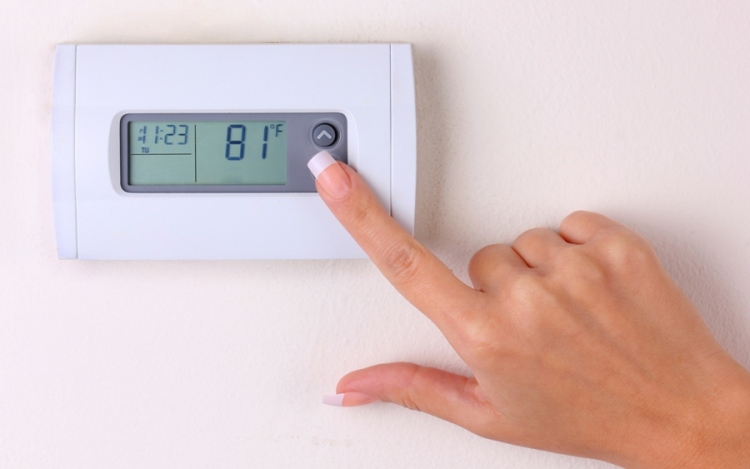More than 75 percent of homes in America rely on air conditioning to cool down hot summers, circulate air, and reduce humidity. Around 90 percent of new houses today are built with central air conditioning that is more energy efficient than older models.

Although central air conditioning can be a huge expense, it should last anywhere from 10 to 20 years, so the cost is worth it. The important thing is to get it right the first time – choose the right type, the right size, and right features for your household needs. The most common type of central air conditioning is the split system. The condenser unit is installed outside the house and the fan-and-coil unit is installed inside. The system is connected by ducts that carry refrigerant.
How to Shop for Central Air Conditioning
There are three crucial things to look for when buying a central A/C system: size, efficiency, and maintenance.
- Unit Size
The size of your A/C system is crucial to a maintaining maximum comfort inside your home. Make sure that the air conditioning capacity is large enough to cool down the interior temperature of your house, but also small enough to not waste energy. A system that is too small won’t be able to cool your entire home, while a system that is too big will consume more electricity.
Before buying an A/C unit, ask a professional HVAC company to survey your home. The contractor should be able to give you a load calculation based on the size of the house, the number of rooms, the amount of existing insulation, and other factors.
- SEER Rating
Air conditioner efficiency is measured by the Seasonal Energy Efficiency Ratio or SEER. The minimum SEER for a split type central air conditioner is 13 so make sure the unit you are buying has a SEER of 13 or higher. A rating from 14 to 22 should be good enough for an energy-efficient classification. The higher the SEER, the lower your energy consumption.
- Maintenance Discounts
Some manufacturers offer discounts on annual inspections and repairs. These are inevitable expenses that come with maintaining an A/C system. You might want to consider negotiating them into the overall price of the unit.
Finding the Right HVAC Contractor
Whether you are replacing an old unit or installing central air conditioning for the first time, there are two costs that will hit your budget: air conditioner price and installation price. Finding a reliable and trustworthy contractor to install and service your home cooling system is of paramount importance in order to save time and money.
- Ask for referrals.
Ask around the neighborhood for recommendations. Contact at least three contractors and compare their price quotes.
- Perform due diligence.
Once you have a list of HVAC companies, check their background. A good contractor will be able to show you proof of insurance as well as government issued licenses. Go to the Better Business Bureau website and look for previous complaints. Ask if technicians are certified to service residential heating and cooling equipment.
- Ask for a detailed survey.
Ask the contractor to provide you with a detailed, room-by-room analysis, calculations, and ductwork design.
Ready to speak with a heating and cooling company? Find a trusted contractor near you today.
Written by APM Construction Services, a construction and home maintenance company that is the best choice for heating and cooling in Columbia, MO.




